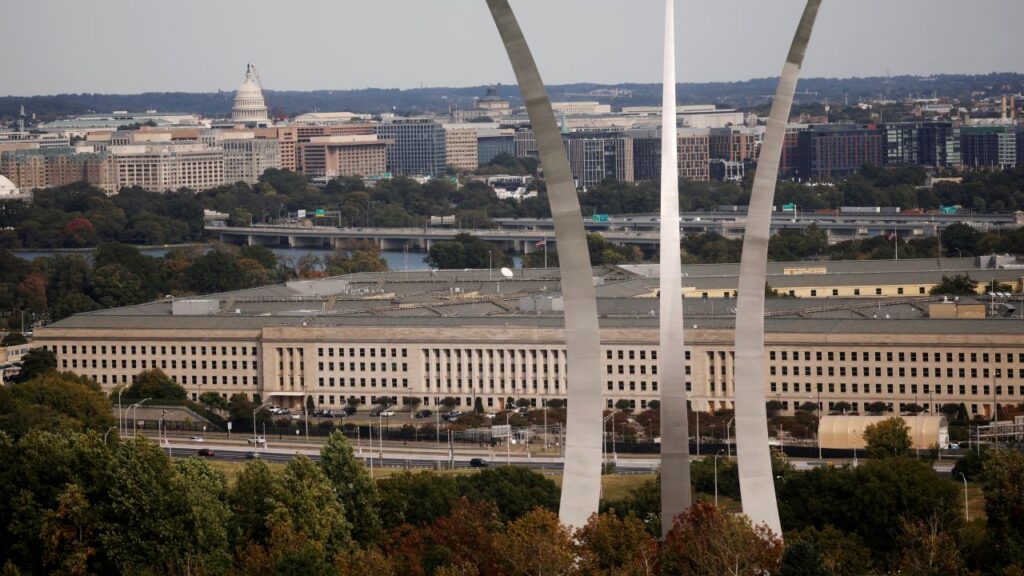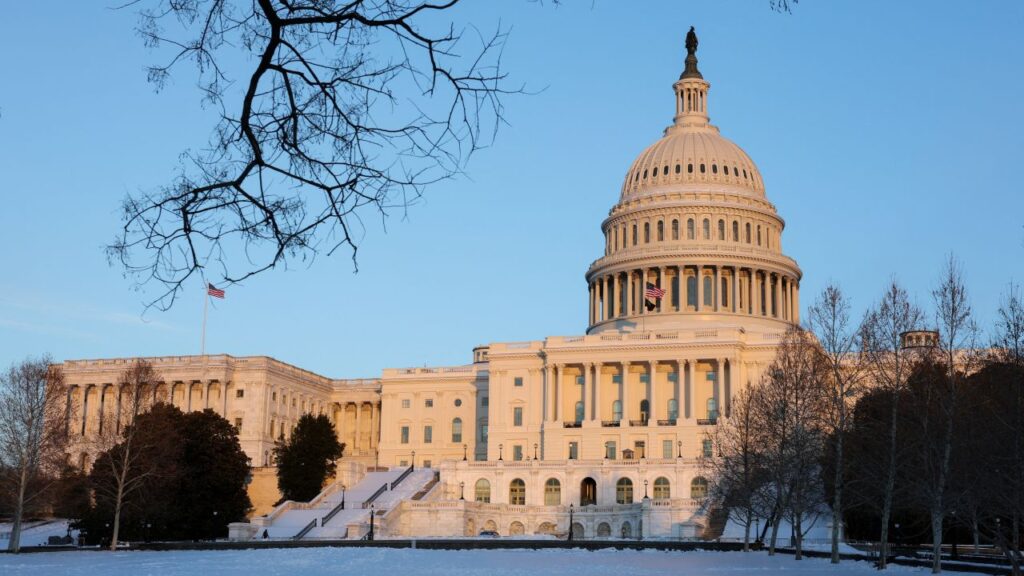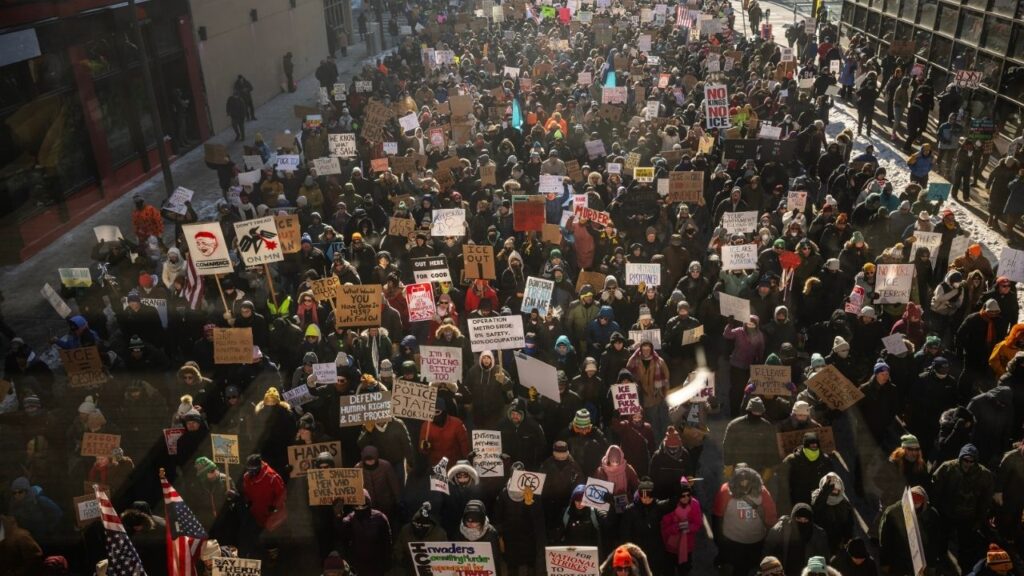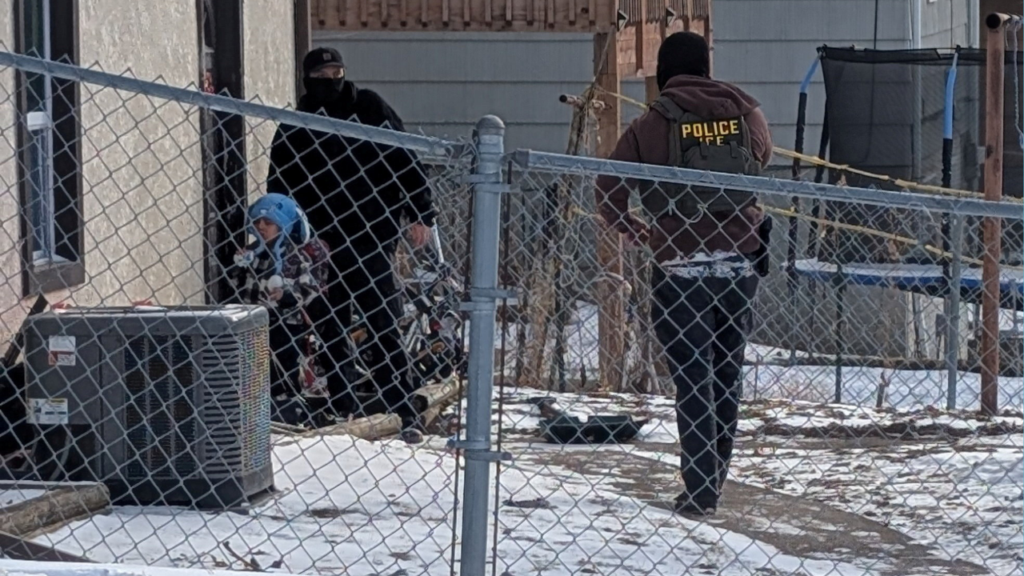Activists demonstrate at the Supreme Court as the justices consider a challenge to rulings that found punishing people for sleeping outside when shelter space is lacking amounts to unconstitutional cruel and unusual punishment, on Capitol Hill in Washington, Monday, April 22, 2024. (AP/J. Scott Applewhite)

- The Supreme Court wrestled with major questions about the growing issue of homelessness on Monday.
- It is expected to decide whether citing people for sleeping outside is unconstitutional.
- The high court is expected to rule by the end of June.
Share
|
Getting your Trinity Audio player ready...
|
The Supreme Court wrestled with major questions about the growing issue of homelessness on Monday as it considered whether cities can punish people for sleeping outside when shelter space is lacking.
The nine justices are expected to decide the case by the end of June.
Homelessness in the United States grew by 12% last year to its highest reported total with an estimated 650,000 people unhoused. The challenge is biggest in the West, with California home to one-third of the homeless population.
The case being heard by the high court started in the rural Oregon town of Grants Pass, which began fining people $295 for sleeping outside as the cost of housing escalated and tents sprung up in the city’s public parks.
The San Francisco-based U.S. 9th Circuit Court of Appeals struck down the law saying that banning camping in places without enough shelter beds is cruel and unusual punishment.
What the Justices Said
Here’s a look at some of the questions and the thinking offered by the justices on Monday:
Justice Sonia Sotomayor: “Where do we put them if every city, every village, every town lacks compassion and passes a law identical to this? Where are they supposed to sleep? Are they supposed to kill themselves, not sleeping?”
Justice Elena Kagan: “Sleeping is a biological necessity. It’s sort of like breathing. I mean, you could say breathing is conduct, too. But, presumably, you would not think that it’s OK to criminalize breathing in public.”
Justice Neil M. Gorsuch: “How about if there are no public bathroom facilities? Do people have an Eighth Amendment right to defecate and urinate outside? Is that conduct or is that status?”
Chief Justice John G. Roberts Jr.: “This is a serious policy problem, and it’s a policy problem because the solution, of course, is to build shelter to provide shelter for those who are otherwise harmless. But, municipalities have competing priorities … Why would you think that these nine people are the best people to judge and weigh those policy judgments?”
Justice Brett Kavanaugh said that solving homelessness is a complicated issue. He questioned whether ticketing people for camping helps if there aren’t enough shelter beds to hold everyone, but also raised concerns about federal courts “micromanaging” policy.
Justice Department attorney Edwin Kneedler argued that people shouldn’t be punished just for sleeping outside, but said the ruling striking down the Grants Pass law should be tossed out because the court didn’t do enough to determine if people are “involuntarily homeless.”



















